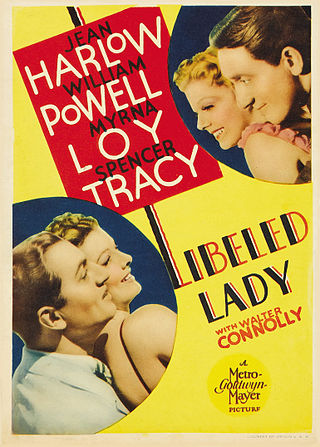
Libeled Lady is a 1936 American screwball comedy film directed by Jack Conway and starring Jean Harlow, William Powell, Myrna Loy, and Spencer Tracy. The screenplay was written by Maurine Dallas Watkins, Howard Emmett Rogers, and George Oppenheimer, from a story by Wallace Sullivan. This was the fifth of fourteen films in which Powell and Loy were teamed, inspired by their success in the Thin Man series.

Fury is a 1936 American crime film directed by Fritz Lang that tells the story of an innocent man who narrowly escapes being burned to death by a lynch mob and the revenge he then seeks. The film was released by Metro-Goldwyn-Mayer and stars Sylvia Sidney and Tracy, with a supporting cast featuring Walter Abel, Bruce Cabot, Edward Ellis and Walter Brennan. Loosely based on the events surrounding the Brooke Hart murder in San Jose, California, the film was adapted by Bartlett Cormack and Lang from the story Mob Rule by Norman Krasna. Fury was Lang's first American film.

Mary of Scotland is a 1936 American historical drama film starring Katharine Hepburn as the 16th-century ruler Mary, Queen of Scots. Directed by John Ford, it is an adaptation of the 1933 Maxwell Anderson play, with Fredric March reprising the role of Bothwell, which he also performed on stage during the run of play. The screenplay was written by Dudley Nichols. Ginger Rogers wanted to play this role and made a screen test, but RKO rejected her request to be cast in the part feeling that the role was not suitable to her image.

That's Entertainment! is a 1974 American compilation film released by Metro-Goldwyn-Mayer to celebrate the studio's 50th anniversary. The success of the retrospective prompted a 1976 sequel, the related 1985 film That's Dancing!, and a third installment in 1994.

Jean Rogers was an American actress who starred in serial films in the 1930s and low–budget feature films in the 1940s as a leading lady. She is best remembered for playing Dale Arden in the science-fiction serials Flash Gordon (1936) and Flash Gordon's Trip to Mars (1938).

Charlie Chan at Monte Carlo is a 1937 American mystery film directed by Eugene Forde and starring Warner Oland, Keye Luke and Virginia Field. The main character is Charlie Chan, a Chinese-Hawaiian detective. This was the sixteenth and final Charlie Chan film with Oland portraying Chan. The film features Keye Luke as Charlie's son Lee and character actor Harold Huber as a French police inspector. It was produced and distributed by 20th Century-Fox.
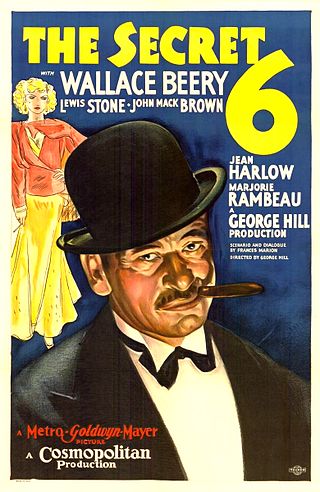
The Secret Six is a 1931 American pre-Code crime film starring Wallace Beery as "Slaughterhouse Scorpio", a character very loosely based on Al Capone, and featuring Lewis Stone, John Mack Brown, Jean Harlow, Clark Gable, Marjorie Rambeau and Ralph Bellamy. The film was written by Frances Marion and directed by George W. Hill for MGM.

Hollywood Party, also known under its working title of The Hollywood Revue of 1933 and Star Spangled Banquet, is a 1934 American pre-Code musical film starring Laurel and Hardy, The Three Stooges, Jimmy Durante, Lupe Vélez and Mickey Mouse. It was distributed by Metro-Goldwyn-Mayer. Each sequence featured a different star with a separate scriptwriter and director assigned.

Men in White is a 1934 pre-Code film starring Clark Gable and Myrna Loy, and directed by Ryszard Bolesławski. The story is loosely based on the Sidney Kingsley Pulitzer-Prize-winning play of the same name. Due to suggestions of illicit romance and abortion, the film was frequently cut. The Legion of Decency declared the movie unfit for public exhibition.
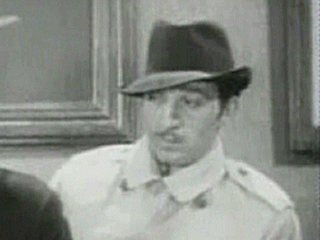
The Stolen Jools is a 1931 American pre-Code comedy short produced by the Masquers Club of Hollywood, featuring many cameo appearances by film stars of the day. The stars appeared in the film, distributed by Paramount Pictures, to raise funds for the National Vaudeville Artists Tuberculosis Sanitarium. The UCLA Film and Television Archive entry for this film says—as do the credits—that the film was co-sponsored by Chesterfield cigarettes to support the "fine work" of the NVA sanitarium.

Show Boat is a 1951 American musical romantic drama film, based on the 1927 stage musical of the same name by Jerome Kern (music) and Oscar Hammerstein II, and the 1926 novel by Edna Ferber. It was made by MGM, adapted for the screen by John Lee Mahin, produced by Arthur Freed and directed by George Sidney.
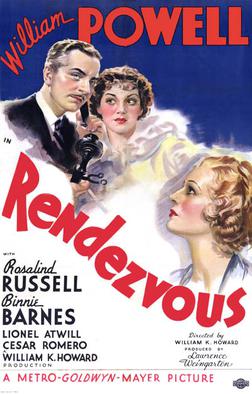
Rendezvous is a 1935 American spy film set in World War I, directed by William K. Howard, starring William Powell and Rosalind Russell and featuring Binnie Barnes, Lionel Atwill, Cesar Romero and Samuel S. Hinds. Powell plays an American cryptologist who tangles with German spies while falling in love.
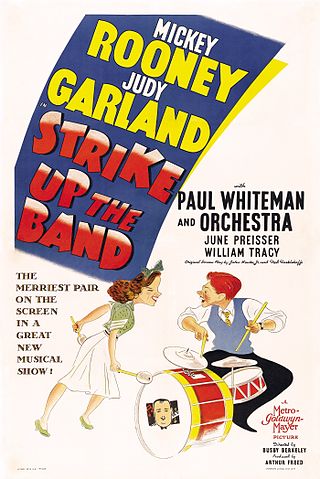
Strike Up the Band is a 1940 American musical film produced by the Arthur Freed unit at Metro-Goldwyn-Mayer. The film was directed by Busby Berkeley and stars Mickey Rooney and Judy Garland, in the second of a series of musicals they co-starred in, after Babes in Arms, all directed by Berkeley. The story written for the 1927 stage musical Strike Up the Band, and its successful 1930 Broadway revision, bear no resemblance to this film, aside from the title song.
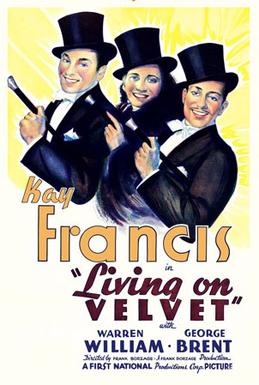
Living on Velvet is a 1935 American romantic drama film directed by Frank Borzage and starring Kay Francis, Warren William and George Brent.
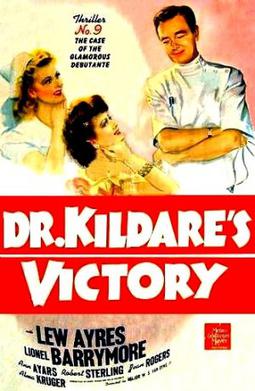
Dr. Kildare's Victory is a 1942 film directed by W. S. Van Dyke. It stars Lew Ayres and Lionel Barrymore. It is the ninth and last of the MGM Dr. Kildare movie series.
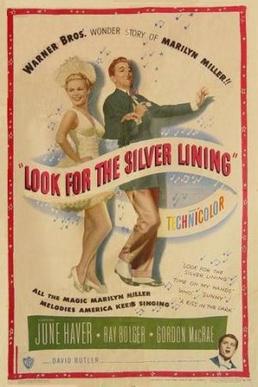
Look for the Silver Lining is a 1949 American biographical musical film directed by David Butler and written by Phoebe Ephron, Henry Ephron and Marian Spitzer. A fictionalized biography of Broadway singer-dancer Marilyn Miller, it stars June Haver and Ray Bolger. It was nominated for an Academy Award for best scoring for a musical picture in 1950.

Circus Rookies is a lost 1928 American silent comedy film produced and distributed by MGM and directed by Edward Sedgwick. It starred the comedy team of Karl Dane and George K. Arthur.
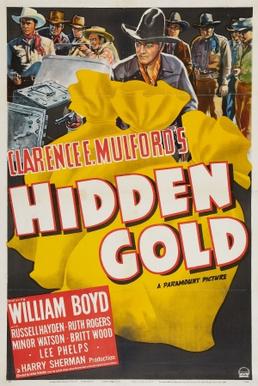
Hidden Gold is a 1940 American Western film directed by Lesley Selander and written by Gerald Geraghty and Jack Merserveau. The film stars William Boyd, Russell Hayden, Minor Watson, Ruth Rogers, Britt Wood, Ethel Wales and Lee Phelps. The film was released on June 7, 1940, by Paramount Pictures.

Pennington's Choice is a 1915 American silent drama film directed by William Bowman and starring Francis X. Bushman and Beverly Bayne a popular film acting team of the era. It was distributed by Metro Pictures.
Killer at Large is a 1936 American mystery film directed by David Selman from a script by Harold Shumate. The film stars Mary Brian, Russell Hardie, Thurston Hall and Henry Brandon as the villain, Mr. Zero. Lon Chaney Jr. appears in a small uncredited role.



















